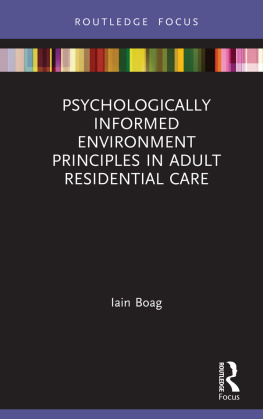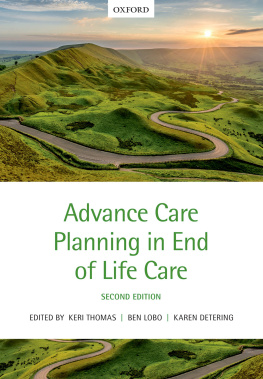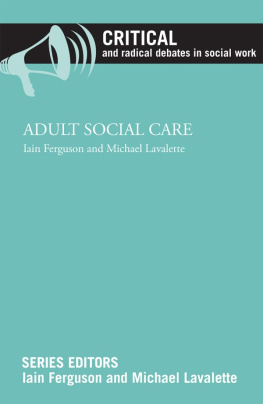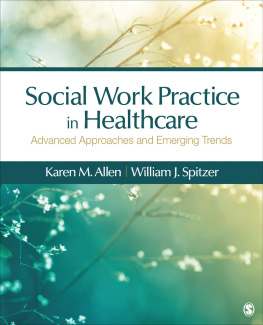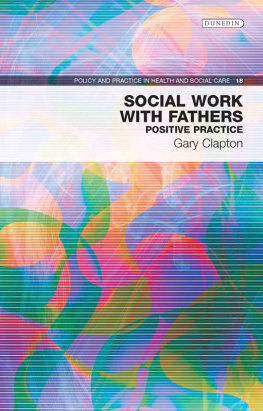First published in Great Britain in 2015 by
Policy Press University of Bristol 1-9 Old Park Hill Bristol BS2 8BB UK Tel +44 (0)117 954 5940 e-mail
North American office: Policy Press c/o The University of Chicago Press 1427 East 60th Street Chicago, IL 60637, USA t: +1 773 702 7700 f: +1 773-702-9756 e:
Policy Press 2015
British Library Cataloguing in Publication Data
A catalogue record for this book is available from the British Library.
Library of Congress Cataloging-in-Publication Data
A catalog record for this book has been requested.
ISBN 978-1-4473-1364-9 paperback
ISBN 978-1-4473-1363-2 hardcover
ISBN 978-1-4473-1366-3 ePub
ISBN 978-1-4473-1367-0 Kindle
The right of Suellen Murray to be identified as author of this work has been asserted by her in accordance with the Copyright, Designs and Patents Act 1988.
All rights reserved: no part of this publication may be reproduced, stored in a retrieval system, or transmitted in any form or by any means, electronic, mechanical, photocopying, recording, or otherwise without the prior permission of Policy Press.
The statements and opinions contained within this publication are solely those of the author and not of the University of Bristol or Policy Press. The University of Bristol and Policy Press disclaim responsibility for any injury to persons or property resulting from any material published in this publication.
Policy Press works to counter discrimination on grounds of gender, race, disability, age and sexuality.
Cover design by Double Dagger
Front cover: image kindly supplied by Shutterstock
Readers Guide
This book has been optimised for PDA.
Tables may have been presented to accommodate this devices limitations.
Image presentation is limited by this devices limitations.
Associate Professor Suellen Murray is Director of Higher Degrees by Research in the College of Design and Social Context at RMIT University in Melbourne, Australia. She has specialised in research in two areas of social policy: the life histories of adult care-leavers and related social policy and social work practice; and violence against women and its related policy and practice responses. Suellen is also the author of More than Refuge: Changing Responses to Domestic Violence (UWA Press, 2002) and co-author of After the Orphanage: Life Beyond the Childrens Home (UNSW Press, 2009), Half a Citizen: Life on Welfare in Australia (Allen & Unwin, 2011) and Domestic Violence: Australian Public Policy (Australian Scholarly Publishing, 2011).
Many people supported my work on this book, and I wish to thank them. Those who I met across the five countries provided invaluable information that helped me make much better sense of the various other sources that I used. In each country, there were some who stood out in terms of their interest in my work and their efforts to help me understand: Phyllis Morgan in Ireland and England; Zachari Duncalf in Scotland; Jim Goddard in England; Janet Longclaws, the Daniels family and John Meston in Canada; and Garth Young in New Zealand. In addition, I wish to thank Eva Wilson Fontaine both for her interest in my work and her warm hospitality. In Australia, I am privileged to have been the beneficiary of the wisdom of a number of people over some years, including Caroline Carroll, Stella Conroy, Jenny Glare and Cathy Humphreys. I acknowledge the contributions made by those whom I have interviewed in the various research projects I have conducted concerned with life after care their experiences have been central to my understanding of the key policy issues addressed in this book.
I extend my gratitude to the people with whom I work at RMIT University, especially Bran Walsh and Suzana Kovacevic, who provided high-level administrative support that allowed me to find some time to research and write. I also acknowledge the contribution of Alissa Lykhina, who did the initial desktop research seeking information about responses to adult care-leavers internationally. Special thanks to Denise Cuthbert and Gail Green, who encouraged my efforts and generously read a draft of the manuscript. Thanks also to the team at Policy Press for their interest in the topic and their expertise in turning my manuscript into this book. Finally, I thank Libby Best and gratefully acknowledge the many weekends forgone in the writing of this book.
Introduction
Ive struggled all my life Ive always felt Im not worthy of anything I drifted in and out of drugs and alcohol and drifted in and out of employment basically all my life. (Brian, adult care-leaver, 2011)
While some adult care-leavers report positive experiences of growing up in care, others, like Brian, a 60-year-old man who grew up in childrens homes in Australia and who is quoted above, reflect on this part of their lives as times of great difficulty and trauma that have had long-term negative impacts. Various inquiries have revealed accounts of abuse and neglect. These experiences of emotional, physical and sexual abuse can result in poor mental and physical health in later life. Often, children experienced a fracturing of family relationships between both siblings and parents and subsequently a lack of knowledge about personal and family history. For Indigenous children, subjected to discriminatory policies of forced removal, this separation could result in disconnection from their community and a loss of knowledge about culture and language. These practices, then, could lead to a loss of sense of identity, social isolation and a lack of emotional and practical support. Limited or disrupted education in some settings has meant that adult care-leavers may also struggle to gain meaningful employment, or have restrictions in their life in a range of other ways.


